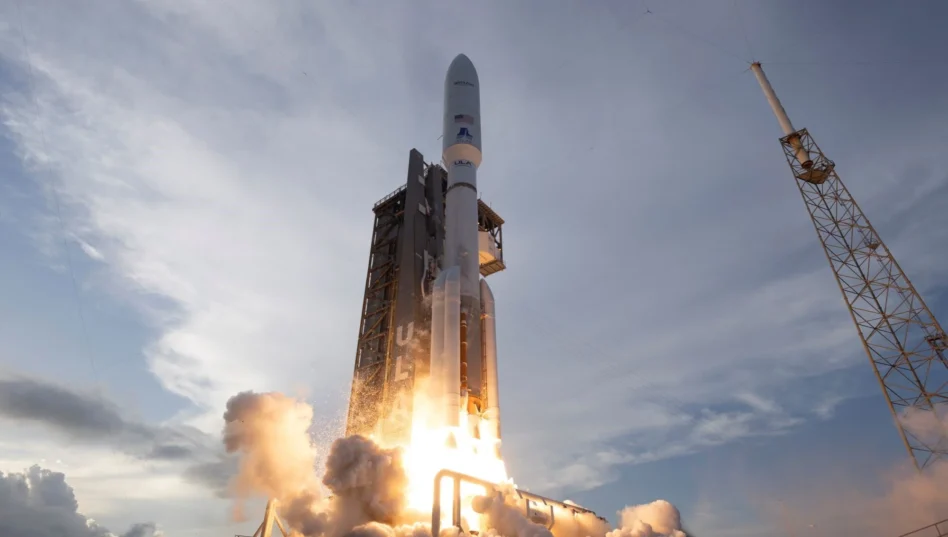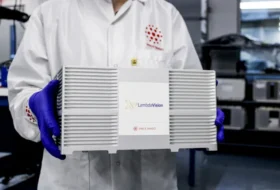Amazon’s long-awaited Starlink competitor finally has a toehold in orbit after a ULA Atlas V rocket safely delivered 27 Kuiper spacecraft to orbit yesterday.
This is the largest payload by mass that the venerable Atlas V rocket has ever carried, requiring five solid boosters alongside its Russian-made RD-180 engine.
Amazon says its internet constellation, laser-linked to provide gigabit speeds, will begin offering service “later this year.” We’re guessing that’s a limited beta.
Baby Bezos birds: Kuiper VP Rajeev Badyal cautioned that his team may have more to learn from this first batch of spacecraft—the first since the company flew a pair of test sats in 2023.
Last week, Bloomberg reported that Amazon had made just “a few dozen” satellites. An Amazon spokesperson told Payload that Kuiper has already shipped 54 spacecraft and said manufacturing is on schedule, but wouldn’t share more detail about what that schedule is.
Sense of urgency: Amazon has to move fast. They need to launch half of their 3,200+ satellite constellation by July 2026—or get a deadline extension from the FCC. That’s normally a routine ask, but it’s not clear what the Trump administration, or the influence of Amazon chair Jeff Bezos’ frenemy Elon Musk, means for business as usual at the agency.
Meaningful comp: It took SpaceX about 18 months to launch the first 1,600 Starlink satellites.
Opening salvo: This is the first of 80+ planned launches that will deliver Kuiper to orbit. The $10B+ launch manifest to build the constellation includes:
- eight more Atlas V missions
- 38 for ULA’s Vulcan
- 18 for the Ariane 6
- three on SpaceX’s Falcon 9
- as many as 27 on Blue Origin’s New Glenn
Up the river: The massive capex to deploy Kuiper has given some Amazon investors pause. But SpaceX’s success with Starlink—Payload Pro projects it will earn nearly $13B this year—underscores the retailer-slash-cloud computing giant’s continued interest in the project.





